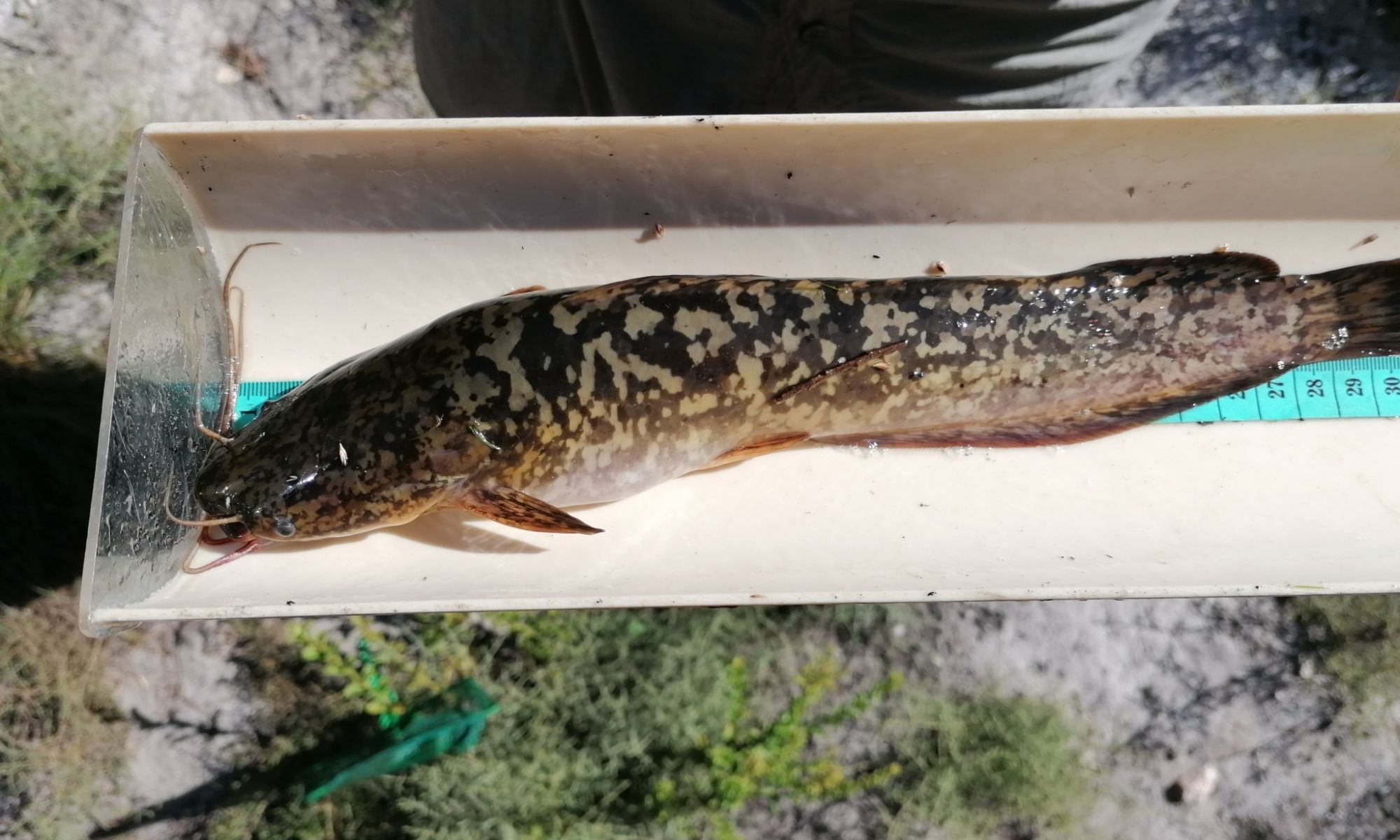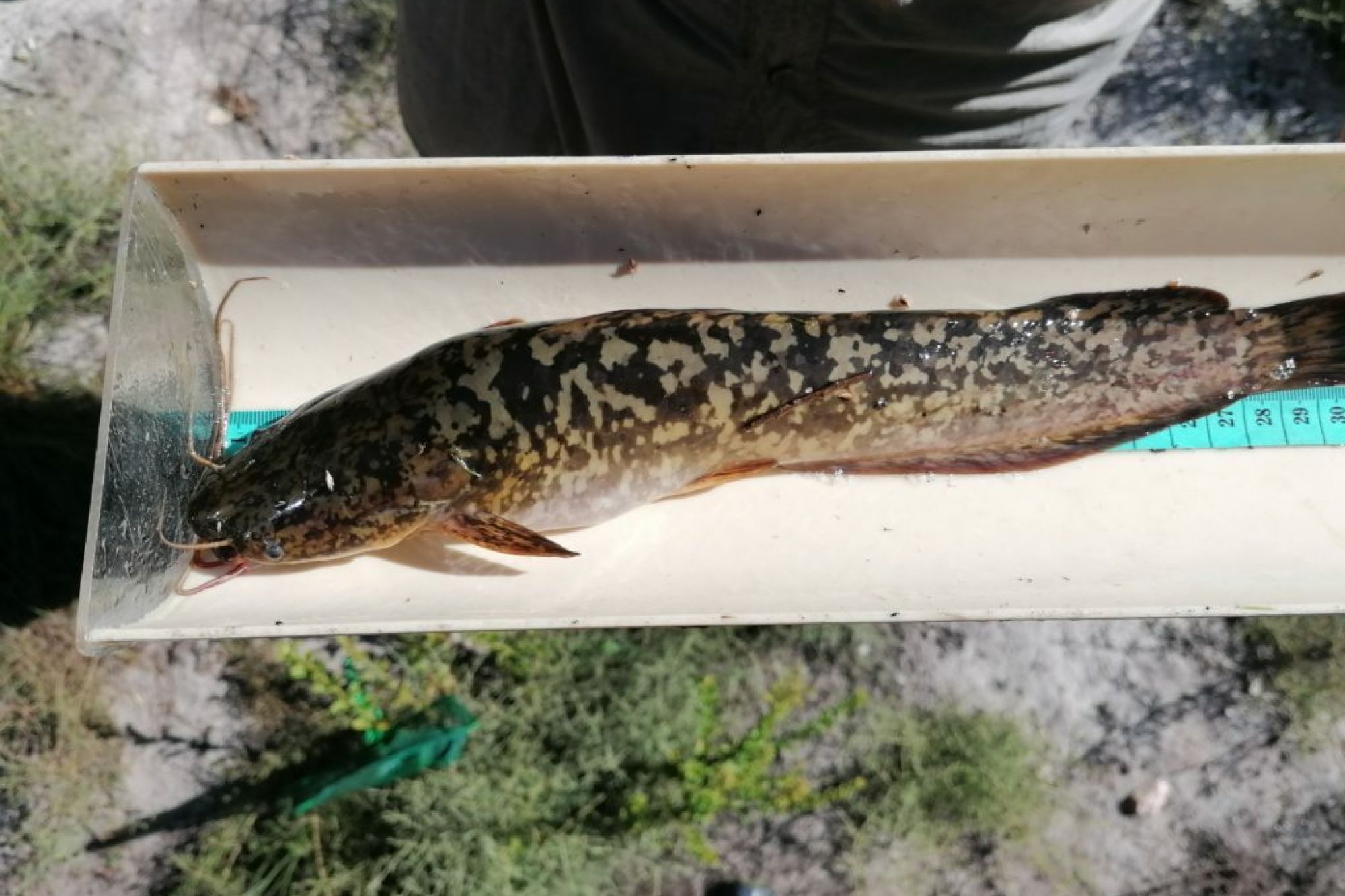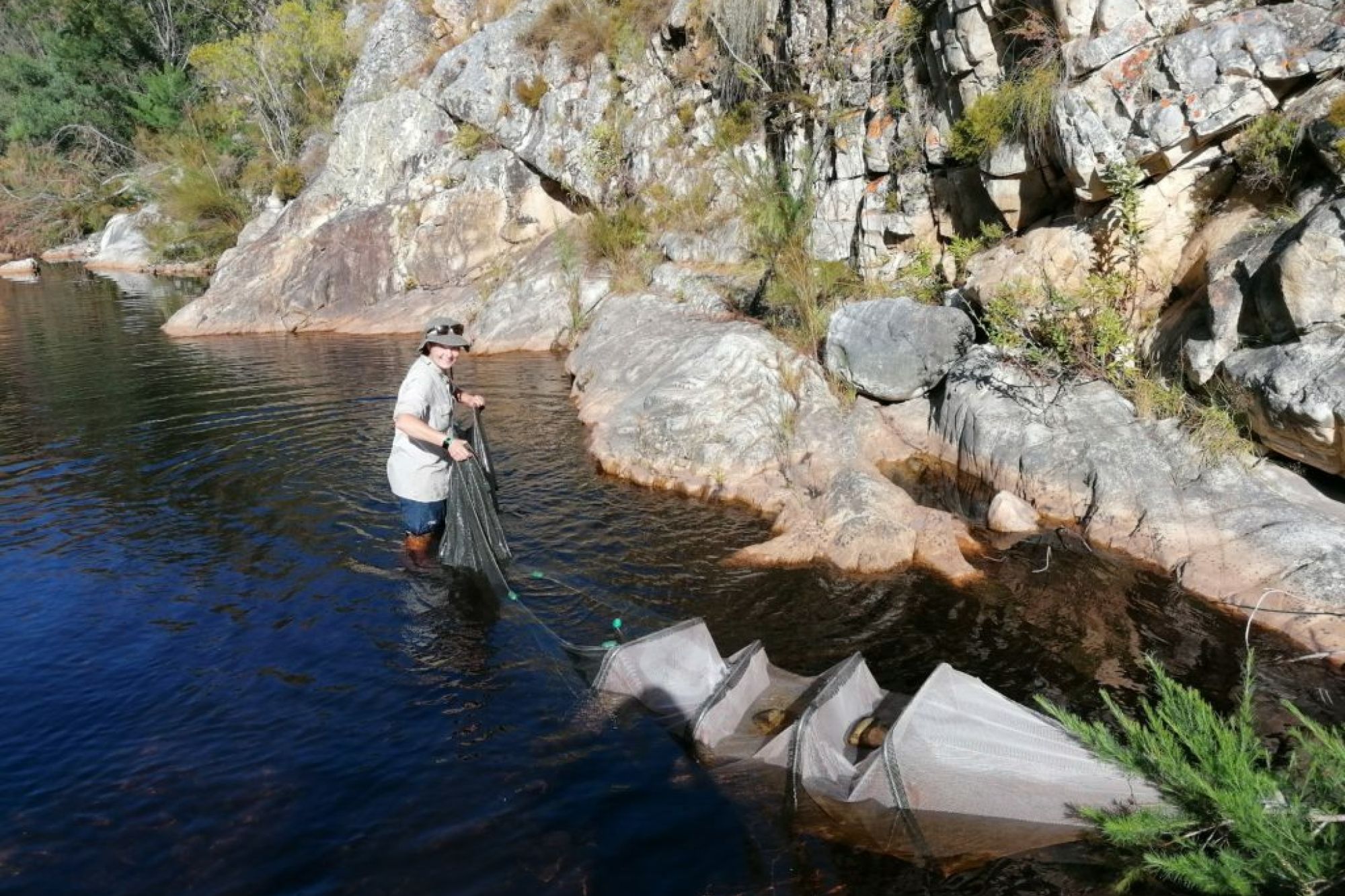
The African sharptooth catfish: a robust survivalist and crafty invader
By Dr Marienne de Villiers, CapeNature Faunal Ecologist
Sharptooth catfish Clarias gariepinus are rather remarkable creatures. They are omnivorous feeders, have high fecundity (can produce many offspring) and survive in a wide range of water quality conditions. In addition, they possess a primitive accessory air breathing organ which enables them to survive out of water for hours or even days, provided their skins and gills stay moist. The downside is that these characteristics enable sharptooth catfish to be very successful invaders and causing severe ecological impacts in areas where they are introduced. For example, they have been implicated in the severe reduction of populations of the indigenous smallscale redfin Pseudobarbus asper in the Gamtoos River system. While sharptooth catfish are indigenous to the northern parts of South Africa, they are both alien and invasive in the Western and Eastern Cape.

Sharptooth catfish are sadly fully established in mainstream habitat of many Western Cape rivers, most notably the Berg and Breede systems, and there is scientific evidence that they can also invade tributaries and headwater streams. These streams are home to indigenous and endangered freshwater fish species such as redfins Pseudobarbus spp., Cape galaxias Galaxias zebratus and Cape kurper Sandelia capensis. The ecological impacts of sharptooth catfish invasions in mountain tributaries are poorly understood and for this reason a monitoring project was initiated in the Gobos River in 2014 following the discovery of sharptooth catfish here in 2012. The Gobos River is a tributary of the Sonderend River with the confluence near the town of Greyton. Sharptooth catfish are abundant in the Sonderend River and as no instream barriers exists, this is the invasion source for the Gobos River.
Monitoring thus far has indicated that viable populations of all three resident indigenous species persist but that sharptooth catfish have invaded up to the furthest upstream sampling site. Sharptooth catfish were consistently detected but present in low numbers. All individuals caught to date were juveniles or subadults. High variation was observed in indigenous fish numbers between sampling events and impacts such as drought and fire could have played a role. Based on the data collected to date, it is difficult to quantify the impacts of sharptooth catfish on the indigenous fish community. The lack of significant effects should be interpreted with caution as invasive species may be present for many years before significant negative effects are observed. An important fact to always consider is that once invasive species are present, they are difficult to manage and, in some cases, may be completely impossible to get rid of. This holds especially true for the aquatic environment and the “prevention is better than cure” principle should always be followed. This information is very useful to inform land use management decisions.





